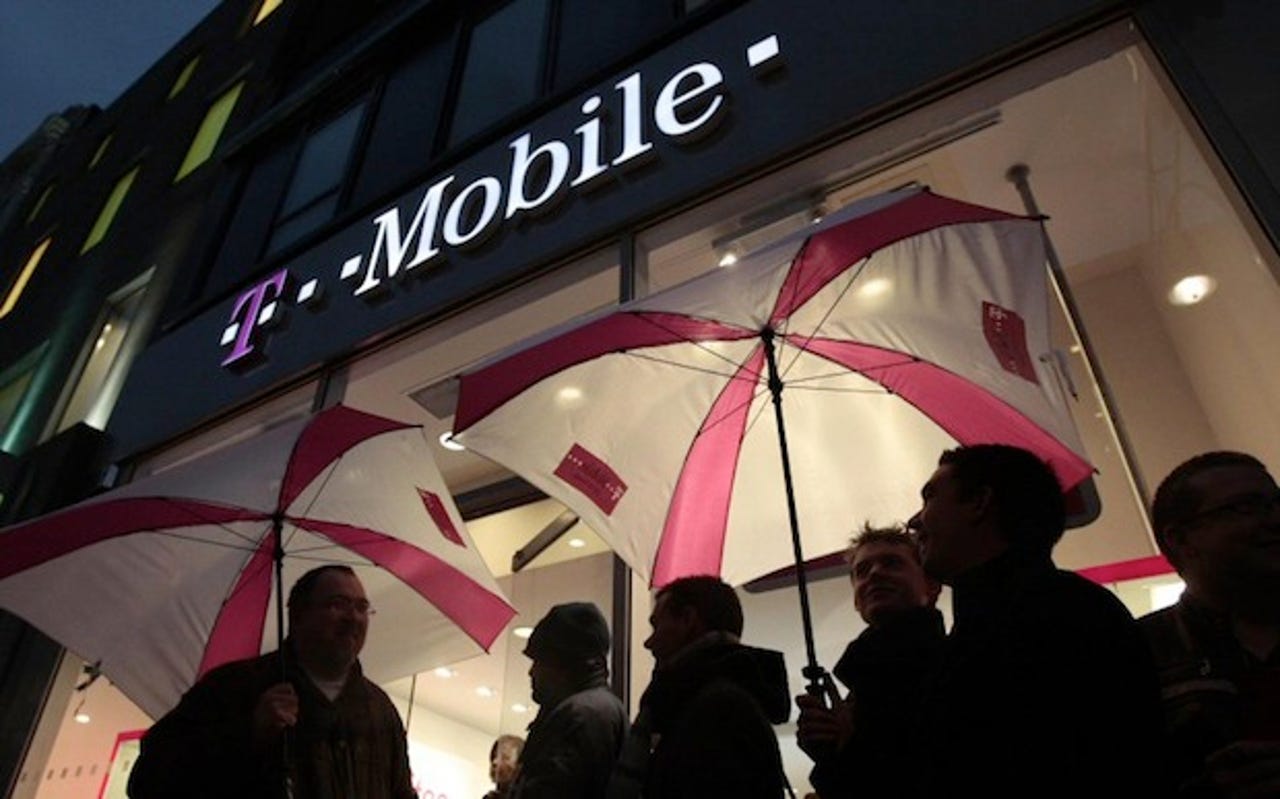T-Mobile CFO floats Sprint merger boat: 'Not if, but when'


T-Mobile is flirting with the idea of a Sprint marriage, as part of wider, long-term efforts to take on its major U.S. cellular network counterparts, AT&T and Verizon.
But whether or not Sprint would want to join in, considering its own merger situation, remains an unknown question that T-Mobile, the fourth largest U.S. cellular carrier, declined to discuss.
At the sidelines of the Goldman Sachs Communacopia investor conference in New York City, T-Mobile chief financial officer Braxton Carter told the Reuters news agency that he expected to see more mergers and greater consolidation in the U.S. cellular market, calling it the "logical ultimate combination."
Calling the move "not a question of if, but when," he hinted that it could be in Sprint's best interest — particularly if it gives the duopoly of AT&T and Verizon something to lose sleep over.
Currently, Verizon and AT&T have more than one-third of the U.S. population each on its roster. Meanwhile, Sprint and T-Mobile's combined share comes in just shy of that.
Realistically, and logically — as Carter suggests — the two together could carve out a "more competitive environment."
But will the U.S. government allow it?
It comes two years after U.S. regulators blocked the proposed sale of T-Mobile to AT&T for $39 billion. The U.S. Justice Department sued to block the sale, a case in which it ultimately won. The logic behind the decision that the four major carriers should remain to keep the cellular market competitive.
Featured
But two years later, the U.S. regulators were more than happy to see U.K. network Vodafone sell its share of Verizon Wireless back to the first-place network by subscribers for a massive $130 billion.
Since the 2011 block on the A&T-T-Mobile merger, T-Mobile snapped up MetroPCS, while Sprint and Japanese cellular giant Softbank made a pitch to merge in their own right.
Meanwhile, AT&T repeated earlier sentiments this week that it continues to gun for a European market, something the firm will most likely achieve by acquiring a network in the 28 member state bloc.
But that might not be as easy as the firm would like, amid proposals from EU Digital Agenda Commissioner Neelie Kroes to break down the barriers in the European roaming market and carve out a single market for the cellular sector.
Edited: at 3:00 p.m. ET: to correct T-Mobile as the fourth largest U.S. carrier, not the third.